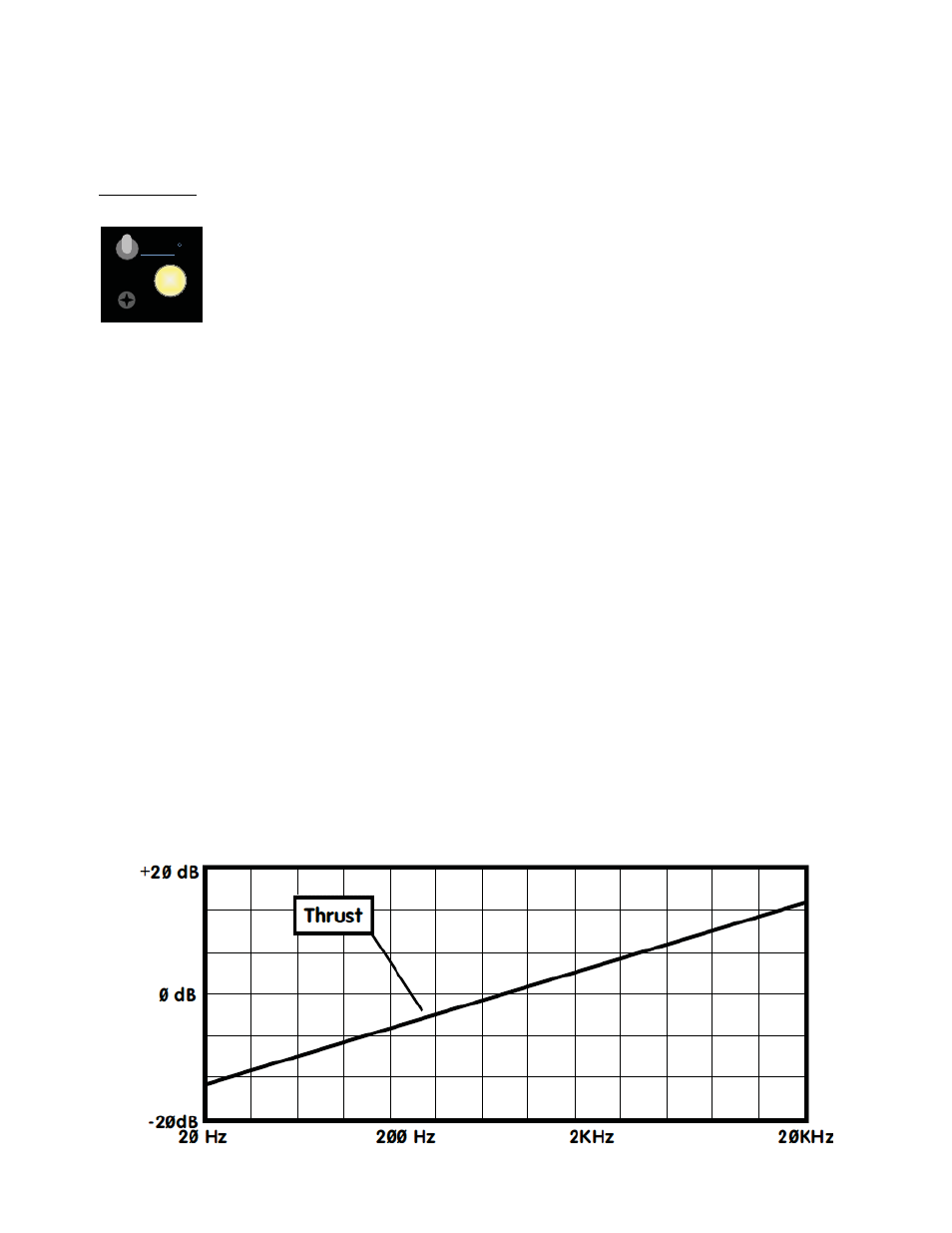Api 527 compressor, Thrust – API Audio 527 Compressor User Manual
Page 12

API 527 Compressor
THRUST
R
SOFT
IN
IN
THRUST
The 527 Compressor includes API’s patented
THRUST® circuit
that can be switched in or out as needed. This places the
THRUST® filter before the RMS detector that decreases the
compressor’s reaction to low frequency content. The result is a
noticeable increase of punch and low frequencies, but a uniformly
compressed signal. It’s the “little more punch” switch!
The patented
THRUST® circuit has been used for many years in the famed API 2500
Stereo Compressor, ATI Paragon and Paragon II consoles, as well as the Pro-6 Input
Strip. This circuit places a filter in front of the RMS detector with a slope of 10dB per
decade (-3dB/8va), which is the inverse of the pink noise energy curve. In acoustics,
the pink noise curve is used to equalize energy vs. frequency over the audio
spectrum, as sound requires more low frequency energy than high frequency energy
to sound correct to your ear. In Hi-fi equipment, a “LOUDNESS” contour is used to
equalize the music at lower levels so it sounds correct. Even with this curve, there is
still a substantial amount of low frequency information compared to high frequency
information in the audio signal path. When that signal is fed into the RMS detector,
the detector will process the signal into a DC control voltage based upon the those
louder low frequencies, resulting in a control voltage that favors the low frequencies
of the signal, causing pumping and a loss of punch. Sometimes, this is not desirable.
By engaging the
THRUST® switch, this inverse filter is placed in front of the RMS
detector, evening out the energy by lowering the energy in the low frequencies and
increasing the energy in the high frequencies, so each octave has the same energy
instead of each octave having half the energy as the one lower. This creates a unique
compression effect that still reduces the overall gain, but the sound is much more
punchy and the signal actually sounds less compressed.
THRUST® filter response
®
Page 11